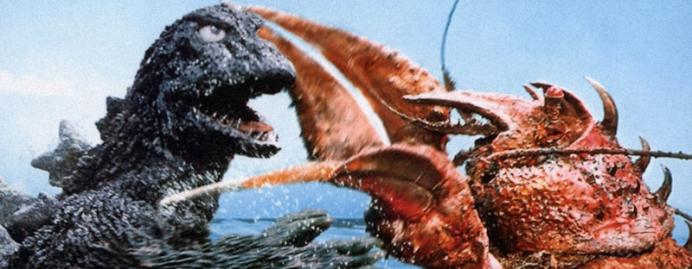Reviews
Gojira, Ebira, Mosura Nankai no Daiketto / Godzilla vs. the Sea Monster
Jun Fukuda
Japan, 1966
Credits
Review by Tina Hassannia
Posted on 07 February 2013
Source DVD
Categories The Compleat Godzilla
Ebirah, Horror of the Deep exemplifies the peak of the Godzilla franchise’s tonal shift into campy, fun territory, a phenomenon that reflected the series’ absorption of 1960s Western pop-culture influences. To understand the origins of Ebirah’s light-hearted tone, the film’s production context is key: the script originally called for King Kong but was later changed to Toho’s trademark kaiju. Series creator Tomoyuki Tanaka replaced director Ishiro Honda with Jun Fukuda, and Masaru Sato took over composing duties from Akira Ifukube. It’s uncertain if Tanaka asked Honda to sit out for Ebirah to prevent the director from settling into a creative rut or if Honda himself chose not to participate because of the series’ recent light-hearted turn, but Fukuda - selected for his experience directing sci-fi, though it was never his preferred genre - took the job with reluctance. Though he went on to direct four more Godzilla films, Fukuda believed Godzilla should have never continued beyond the original film. The director’s predilection for comedy is reflected in Ebirah, in which the typical scientist, detective and reporter characters are replaced with a motley crew of youngsters who find themselves trapped on an island with the Red Bamboo, a fascist/Communist-like government agency developing nuclear bombs and employing Infant Island people as slaves to manufacture a yellow liquid to keep Ebirah the sea monster at bay.
The youngsters come together under fairly comical, spontaneous circumstances: a psychic convinces Ryoto that his brother, Yata, has not been killed at sea. In a desperate attempt to find him, Ryoto enters a dance marathon (featuring Sato’s whimsical surf rock, seemingly taken straight out of the Batman television series) to win a ship. There he meets Mita and Ichiro, who accompany him to a harbor where they sneak onto a yacht. Owner Yashi greets them at gunpoint but quickly forgives them for trespassing and lets them stay overnight. In the morning it is revealed that Ryoto secretly set them to sail overnight, and that Yashi is no yachtsman but a professional criminal. The four men are nearly devoured by Ebirah, a huge crab sea creature with zero mercy in snatching victims in its claws. They awake safe and sound ashore an island and watch with horror as a group of Infant Island people attempt to escape the Red Bamboo, who viciously shoot them down. The Red Bamboo misses one girl, Daiyo, who joins the four men as they plain their escape from the island. In the end, they not only find Ryoto’s brother Yato, but free the slaves and escape the wrath of the Red Bamboo by awakening Godzilla, asleep in an island cave. He destroys the government compound and fights Ebirah in the sea. Meanwhile, the youngsters try to detonate a bomb employed by one of the Red Bamboo staff—but to no avail. Mothra shows up just in time to save her people and the Scooby gang. As they fly away, they fret for the oblivious Godzilla, but the ever-invincible kaiju quickly jumps in the ocean before the island blows up.
In Ebirah, a sombre explicit commentary of nuclear war - which underscores previous Godzilla films - crystallizes into an unfettered reimagining of monster catastrophe that unabashedly enjoys its own symbolism, with the Red Bamboo a straight-up imitation of the nefarious SPECTRE organization found in James Bond. There’s even the accompanying faceless backdrop of the nuclear facility, complete with red flashing bomb buttons that are forever out of reach, empty corridors, secret passageways and mod-colored pipes, and doors and locks that are stealthily cracked by Yashi, whose criminal talents come in handy.
Ebirah certainly marked an array of firsts for the series. In addition to the production crew changes, the introduction of a sea monster, new settings and new protagonists, there is Godzilla’s gentle initial appearance in the film. Instead of his usual stomp-and-greet, he’s found resting peacefully in a cave. It’s almost endearing to watch, and much in line with the series’ continued attempts to anthropomorphize a monster that signifies more than a simple threat to humanity. Indeed, Godzilla is the strategic foil used by the youngsters to escape the Red Bamboo, who are as much the real villain as Ebirah, and who share as much personality and likability (viz. nada) with the surprisingly life-like crab creature. The gang is truly afflicted about Godzilla’s safety when they escape the island aloft Mothra’s back. It’s a strange, though not unwarranted stance given that the monster that has ruined countless cities. Godzilla is awoken by the Scooby gang precisely because they know his capacity for ruin and that he is their only chance for survival from the Red Bamboo. It’s a narrative turn bound by the logic of utilitarianism, though also in accordance with a congenial respect towards nature, and its balance of good and evil. The Scooby gang are aware of the destruction they will bring forth with Godzilla’s return, but it is a necessary - though certainly haphazard - solution to the problem presented by the more-dangerous Red Bamboo and the slavery of the Infant Island people. While the Red Bamboo exploit and threaten the existence of natural resources, the Scooby gang succeed in saving the Earth by operating within the boundaries of nature—including the ineluctable presence of Godzilla.
More The Compleat Godzilla
-
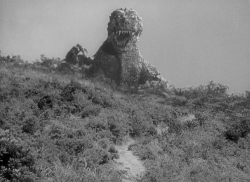
Godzilla
1954 -
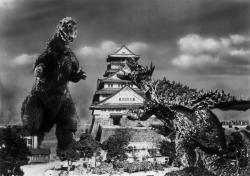
Godzilla Raids Again
1955 -
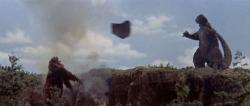
King Kong vs. Godzilla
1962 -
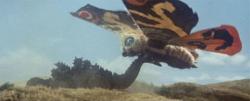
Mothra vs. Godzilla
1964 -
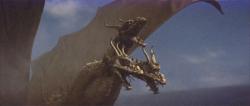
Ghidorah, the Three-Headed Monster
1964 -
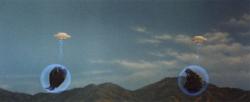
Invasion of Astro-Monster
1965 -

Ebirah, Horror of the Deep
1966 -
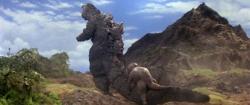
Son of Godzilla
1967 -
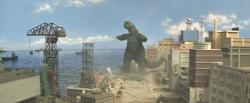
Destroy All Monsters!
1968 -
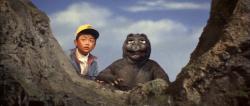
All Monsters Attack
1969 -
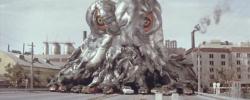
Godzilla Vs. Hedorah
1971 -
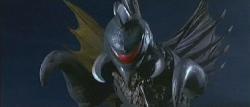
Godzilla vs. Gigan
1972 -
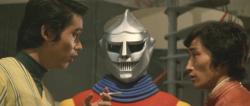
Godzilla vs. Megalon
1973 -
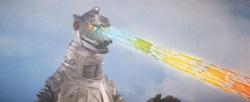
Godzilla vs. Mechagodzilla
1974 -
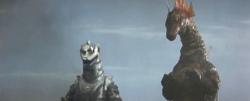
Terror of Mechagodzilla
1975 -
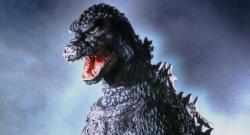
The Return of Godzilla
1984 -
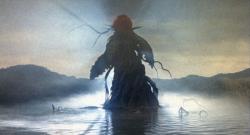
Godzilla vs. Biollante
1989 -
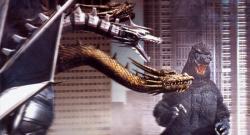
Godzilla vs. King Ghidorah
1991 -
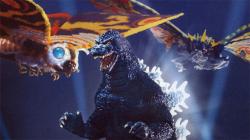
Godzilla vs. Mothra
1992 -
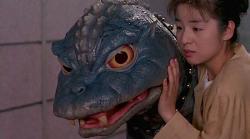
Godzilla vs. Mechagodzilla
1993 -
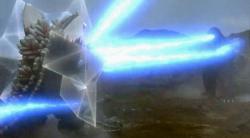
Godzilla vs. SpaceGodzilla
1994 -
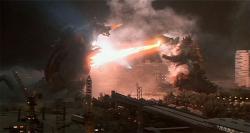
Godzilla vs. Destoroyah
1995 -
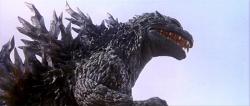
Godzilla 2000
1999 -
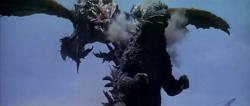
Godzilla vs. Megaguirus
2000 -
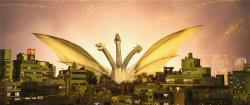
Godzilla, Mothra and King Ghidorah: Giant Monsters All-Out Attack
2001 -
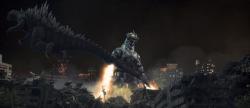
Godzilla Against Mechagodzilla
2002 -
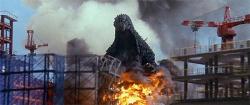
Godzilla: Tokyo S.O.S.
2003 -
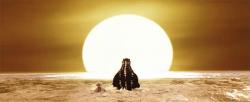
Godzilla: Final Wars
2004
We don’t do comments anymore, but you may contact us here or find us on Twitter or Facebook.



